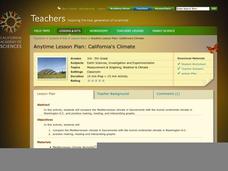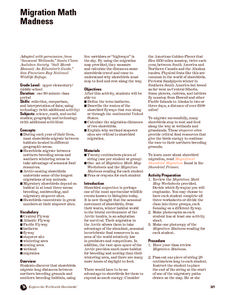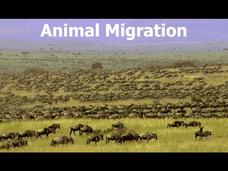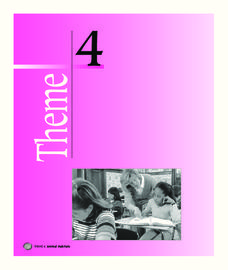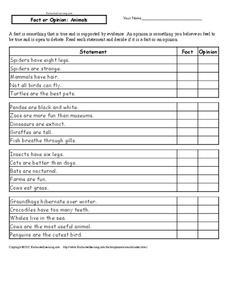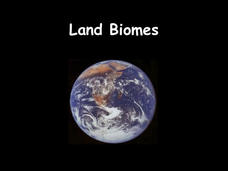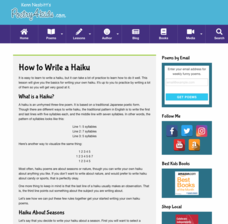Weather Bug
WeatherBug
Exploring the weather has never been more intriguing! Whether you are looking for a quick glance at the 10-day forecast, trying to figure out if lightning is heading your way, or wondering what the pollen count is, you will find out...
California Academy of Science
California's Climate
The United States is a large country with many different climates. Graph and analyze temperature and rainfall data for Sacramento and Washington DC as you teach your class about the characteristics of Mediterranean climates. Discuss the...
Prince William Network
Migration Math Madness
A great way to incorporate math into life science, this lesson has learners measure migratory routes on a map and calculate the actual distance that shorebirds on the routes would cover. Learners compute the distance covered in both...
University of Washington
Animal Migration
Here is a unique resource to use with middle and high schoolers that deals with animal migration. Viewers discover the reasons for, types of, and animals that practice this behavioral adaptation. Specific animals that are introduced...
Polar Bears International
Top of the World
Learn about polar bears and the Arctic circle with a instructional activity about the countries and conditions of the region. After examining how the area differs from Antarctica, kids explore climates, animals, and geographical position...
Bridges In Mathematics
Kindergarten Assessments and Scoring Checklists, Common Core State Standards
Whether or not your school has adopted Common Core standards, this resource provides great tools for assessing kindergartners' key numeracy and computation skills.
Houghton Mifflin Harcourt
Animal Habitats: English Language Development Lessons (Theme 4)
This activities in this packet, the second in the series of support materials for the Houghton Mifflin Harcourt thematic units on animal habitats, are designed specifically for English language learners.
ESL Kid Stuff
Seasons
English language learners celebrate the seasons with games, songs, and readings.
Curated OER
Fact or Opinion: Animals
How many legs do spiders have? Is that an opinion, or is it a fact? Complete a worksheet with four sets of five questions about different animals and their attributes, noting whether each statement is a fact or an opinion.
New York State Department of Environmental Conservation
Adaptations – Designs for Survival
What's the difference between behavioral adaptations and physical adaptations? Learn about the various ways that organisms adapt to their environment with a worksheet about the creatures of the Hudson River.
ESL Library
Beginner Level Thanksgiving ESL Lesson Plan
Thanksgiving is a cherished tradition in the United States and Canada. Introduce the beginnings of the Thanksgiving celebration with a resource that features reading comprehension activities, vocabulary exercises, and a short writing...
K12 Reader
The Mayflower
The journey aboard the Mayflower in 1620 was long and arduous for the Pilgrims set for the New World. Learn about the difficulties of the expedition, including the extended timeframe and cramped quarters, with an informative reading...
National Park Service
Hibernation-Migration-Fascination
What's the difference between hibernation and a good nap? Find out with an engaging life science activity that compares the hibernation habits of grizzly bears and marmots. After learners read an informational passage about each mammal,...
K5 Learning
The Best Vacation Ever
Hang ten with a fun reading activity about a family vacation on a cruise. Fifth graders read along as Scott transfers his snowboarding skills to surfing in an engaging reading activity that includes six comprehension questions.
Reed Novel Studies
Hatchet
A brief introductory presentation illustrates many images from Gary Paulsen's Hatchet. From berries to black bears, young readers take a quick trip through Alaska during a class reading unit.
K5 Learning
All About Bears
Want to know all about bears? Read a passage about the way they look, how they live, and their lifestyles. The reading passage is followed by questions that ask what baby bears are called and in what ways some bears are different, to...
Polar Trec
Ice Cores: Modeling Ice Sheets
Ice cores provide scientists with knowledge of historic melt layers, air temperatures, greenhouse gases, and climate stability. Scholars work in groups to build layers representing snow and ice over thousands of years. Then, groups...
Curriculum Corner
February Bell Ringers
Use a set of 30 writing bell ringers to get through the month of February. Writers tap into and write about how February makes them feel, what it smells like, and all types of celebrations that occur during the month.
Mississippi Department of Archives and History
Protesting Violence without Violence
The ultimate legacy of Emmett Till's violent death is its role in the non-violent roots of the Civil Rights Movement. A lesson compares contemporaneous articles with the lyrics of Bob Dylan's "The Death of Emmett Till" and prompts...
Biology Junction
Land Biomes
Biomes share similar climates and ecosystems, despite being separated geographically on the planet. A presentation introduces the six most common land biomes. It focuses on the commonalities in climate, plants, and animals with many...
Poetry4kids
How to Write a Haiku
A haiku is the focus of an activity that challenges scholars to draft an original poem. Authors discover the origin and components of a haiku, read three example poems, then follow six steps to compose their own.
American Museum of Natural History
Wonderful World of Wasps
Shockingly, wasps sometimes challenge lions as the king of predators! Learners explore the life of a wasp in an interactive online lesson. They read about the characteristics of wasps and then complete activities to learn about their lives.
American Museum of Natural History
Are YOU Cut Out for Antarctica?
Negative 80 degrees Fahrenheit, you say? Scholars complete a quiz to gauge their adaptability to the extreme climate of Antarctica. The quiz scored online gives them feedback of their likelihood of surviving in Antarctica.
Curated OER
Today's Temperature
Students study freezing temperatures and practice taking temperature readings with a thermometer. They write about a personal experience with weather. They discuss that the freezing point is at 32?? and that any water outside will...
Other popular searches
- Winter Sports
- Winter Solstice
- Winter Celebrations
- Winter Art
- Winter Animals
- Winter Holidays
- Arts and Crafts Winter
- Winter Olympics
- Preschool and Winter Sports
- Winter Clothing
- Brian's Winter
- Animals in Winter



